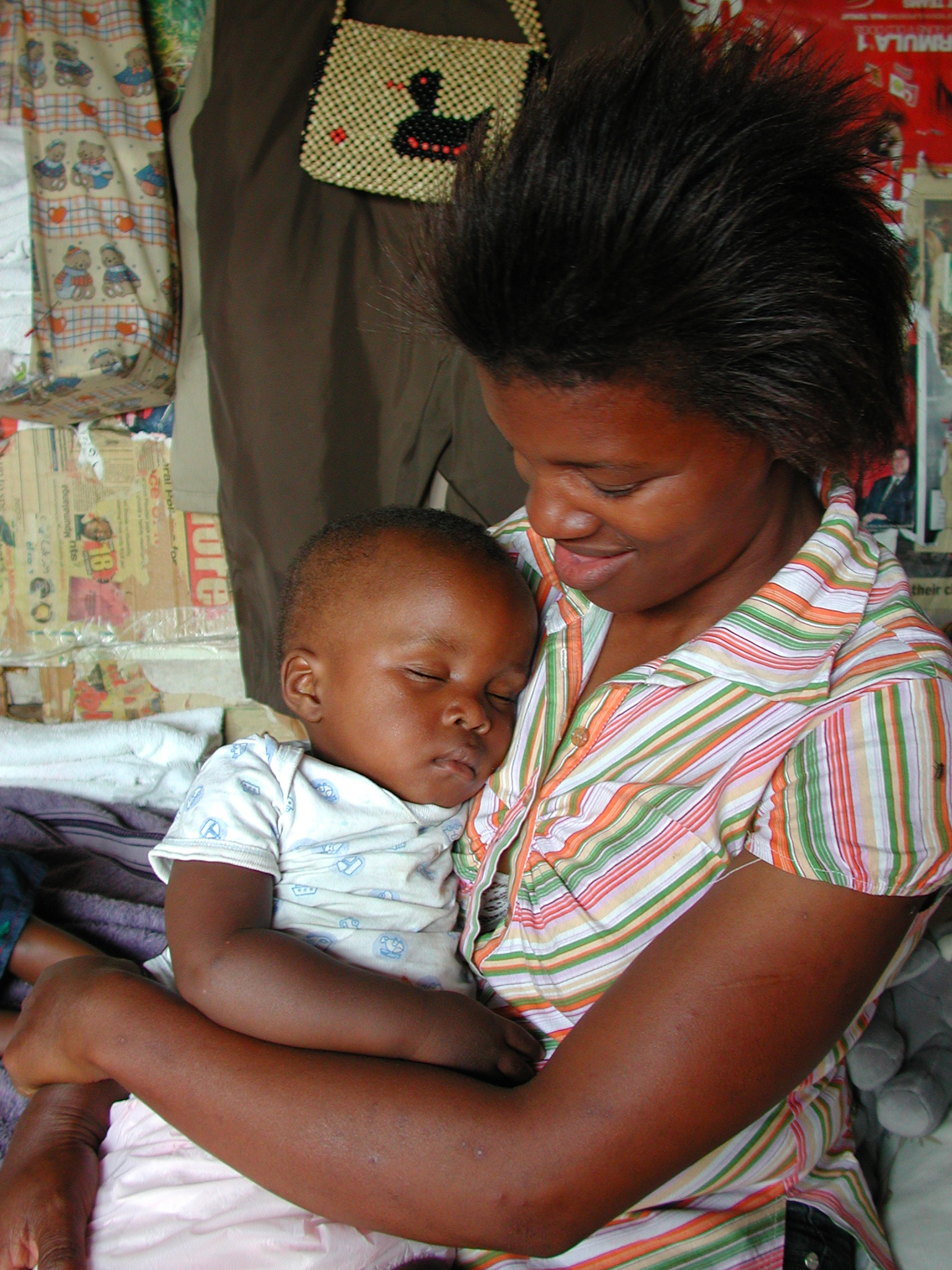Post-Natal (After Birth) Health Care
| Description: |
Post natal services become available after the mother and her newborn have been discharged from the MOU or Clinic. This usually happens six hours after the birth if both mother and baby are in good health. Visit your nearest clinic for postnatal care within 3 days after discharge from the birthing unit. After The Birth
If the baby has a low birth weight, mothers are trained in Kangaroo Mother Care (KMC).
The mother's health is regarded to be as important as that of the newborn. Mothers are examined at the clinic on follow-up visits to check that the uterus (womb) has returned to its original position. The clinic staff will also offer mothers counselling on available contraception /family planning options. Some women struggle with the demands of being new mothers and clinic staff are trained to assess them to see if they are suffering from the "baby blues", Post Natal Depression or Post Natal Psychosis. If there is a problem, the mother may be counselled, given medication or referred to secondary or tertiary hospitals for further assessment or treatment.
Mothers can deliver at fixed clinics or Midwife Obstetric Units (MOUs), which are run by midwives in the community for primary healthcare patients. If complications arise during birth then they will be transferred to a hospital up the line. Mothers who are HIV positive can join the Prevention of Mother to Child Transmission service. Expectant mothers are encouraged to bring a birthing partner (husband/friend/relative), known in the service as a "doula", to assist with the birthing process. It has been found that mothers accompanied by a doula need less pain medication because they feel supported. Mothers can request a birthing position (eg squatting) that makes them feel the most comfortable. The health facility gives all mothers a Road to Health Booklet when the baby is born. This card is kept at home and must be given to the sister on follow-up visits to the clinic. The card is an ongoing record of the child's health from birth to five years of age. If you are a first time visitor to a health facility, you will be asked to
|
| Instructions: |
|
| Provided At: |
These facility categories: |
| Government Body: | (Western Cape Government) |
| Price: |
Maternal services are free of charge. |
- Birth/Labour Services (Service)
- Prevention of Mother to Child Transmission (PMTCT) (Service)
- Fetal Alcohol Syndrome (FAS) Prevention and Treatment (Service)
- Human Genetic Services (Birth Defects) (Service)
- Human Genetics Policy Guidelines for the Management and Prevention of Genetic Disorders, Birth Defects and Disabilities (Policies) (File type: pdf; size: 388.18 KB)




